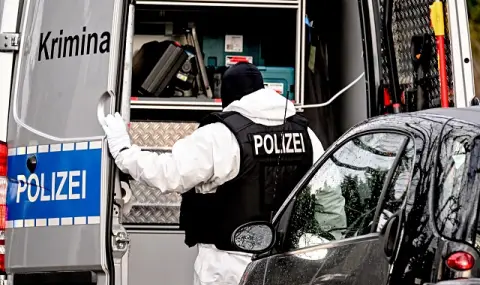Germany has temporarily brought back border controls to stop illegal immigrants. But in the western part of the country, not everyone is happy. DV report from Aachen near the border with Belgium and the Netherlands.
The return of land border control is currently limited in time – until March 15, 2025. The borders of Germany have a total length of over 3,800 kilometers. Near Aachen - on Germany's western border with Belgium and the Netherlands - at first glance nothing unusual can be noticed after the return of border controls.
In the Aachen region, the previous border and checkpoints have long since disappeared. Numerous motorways and smaller roads connect the towns and villages of the border region, where many people live in one country, for example Belgium, but work in Germany or the Netherlands - and vice versa. With cars and buses, people constantly cross borders, including to shop in neighboring countries.
Flexible border control
"It should stay that way,", emphasizes David Speks, spokesman for the Aachen police. Even so, the Ministry of the Interior has only ordered “point-based, situational, flexible in place and time“, not “universal“ checks.
On the first day of the return of border checks – on September 16, officers from the federal police, which is responsible for cross-border crime, took up a position at the border. They wear bulletproof vests and assault rifles. The police cars at the border monitor the traffic. If they spot a suspicious vehicle, they stop it for inspection. It includes a review of the personal documents of travelers and a review of the trunk of private cars and the cargo spaces of trucks.
Control is carried out by mobile groups in changing locations. Their experience points to where it is best to check. However, the problem with these random checks is mostly staff related. A few years ago, the police union estimated that around 900 officers would be needed in the Aachen area alone to control the most important border crossings around the clock. The Federal Police Inspectorate in Aachen now has around 330 employees who have to cover a wide perimeter – a stretch of border more than 200 kilometers long south of Aachen, and the area also has 44 railway stations and three airports.
Lack of employees
Full border control, which the main opposition CDU/CSU force is pushing for in order to keep out as many illegal migrants as possible - would not be possible with the current staff. It is not clear how many people are involved in the expanded checks at the border, only that the police in Aachen have been reinforced with additional personnel. In some cases, police officers can also wear civilian clothes to make control more effective, adds Shpeks.
People who live in the border area, however, fear that the checks could cause traffic jams along the border with hours of waiting. “We monitor cross-border traffic and try to minimize the consequences,”, Aachen police chief Richard Koester told DV.
How are neighboring countries reacting?
Previously introduced checks on Germany's eastern and southern borders are paying off: more than 30,000 people have been stopped at the border since October 2023 alone, and asylum applications have fallen by a fifth. However, Germany's neighboring countries are not particularly happy with the new measures. In the Schengen area, in fact, only the external borders are controlled, but not the national ones.
„Everyone understands that the number of migrants arriving in Germany is too high, so the German government has an understandable interest in getting things under control by better managing illegal migration. We act within the framework of European law, but we will use our opportunities to the maximum," Chancellor Olaf Scholz said in this regard.
Already after the first day of checks at the border, the police in Aachen gave a positive assessment. In several cases, people were found who entered the country without permission and were sent back.
However, won't those who want to enter illegally be diverted to the smaller border crossings, where there will be less control? Federal police spokesman David Specks shrugs. According to him, it will always be about a “game of cat and mouse”. This will certainly not change now.
